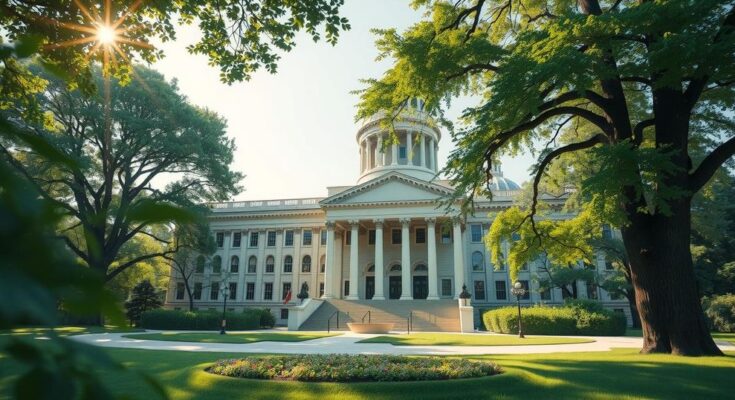Togo conducted its first senatorial elections, facing opposition claims of a rigged process and calls to boycott. The new constitution introduced significant changes to the political structure, transferring power to the Council of Ministers. While some opposition groups participated, many condemned the elections as undemocratic, criticizing the costs and lack of local benefits arising from the new Senate.
On Saturday, Togo conducted its inaugural senatorial elections, amid apprehensions regarding President Faure Gnassingbe’s potential to maintain power indefinitely through constitutional changes. Numerous opposition factions have opted to boycott the elections, claiming that the parliamentary reform designed for the nation’s governance appears to be rigged. The new constitution replaces direct presidential elections with a parliamentary system, rendering the presidential role largely ceremonial.
Under the revised constitution, authority is effectively transferred to the President of the Council of Ministers, currently held by President Gnassingbe, who has been in power since 2005. Previously, he faced restrictions under the old constitution, permitting only one last presidential campaign, scheduled for this year. Over 1,500 municipal and 179 regional councilors participated in electing 41 of the 61 new senators from a pool of 89 candidates, while the remaining senators will be appointed by the president.
Vimenyo Koffi, a municipal councilor who voted in the capital, Lome, commented on the necessity of testing the new constitution to identify its shortcomings. Although the Alliance of Democrats for Integral Development (ADDI) confirmed participation, other groups, such as the National Alliance for Change (ANC) and the Democratic Forces for the Republic (FDR), have denounced the elections as a ‘constitutional coup d’état.’
The ANC specifically stated its firm opposition to what it perceives as an undemocratic procedure aimed at establishing an illegitimate regime. FDR criticized the elections as a mock vote, claiming the resulting Senate would be an expensive entity that would not address pressing local needs. Conversely, supporters of the president assert that the constitutional amendments enhance representation.
Gnassingbe’s party, the Union for the Republic, recently achieved a significant victory in legislative elections. However, this win has been contested by opponents who labeled it an ‘electoral hold-up’ fraught with allegations of widespread fraud.
In summary, Togo’s first-ever senatorial elections have been marred by significant opposition and accusations of illegitimacy. While the government defends the new constitution as a means to ensure better representation, several factions perceive it as a step towards indefinite presidential rule. The electoral process has sparked widespread debate regarding democracy and governance in Togo, with ongoing tensions between the ruling party and opposition groups.
Original Source: www.arabnews.com




